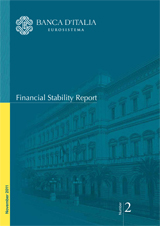Second Financial Stability Report

The global financial system is being shaken by severe strains. The deterioration of the world growth outlook and increasing risk aversion have heightened investors' concerns for the soundness of heavily indebted issuers, public and private alike. The time horizon for investment has shortened; the preference for low-risk assets has strengthened.
These tensions have affected Italy, inducing a significant increase of its sovereign spreads. In the judgment of investors, the Italian economy is suffering from high public debt and low growth. But Italy can also count on a series of strengths, which are reviewed in this Report: the trend towards the consolidation of the public accounts, the low level of private sector debt, the absence of imbalances in the real-estate market, and limited foreign debt.
The Italian banking system is not a source of instability. Its capital position is sound, and will be strengthened further as part of the initiatives under way at European level. However, the analyses contained in this Report show that the system is feeling the repercussions of the sovereign debt strains and the cyclical economic slowdown. Similar strains are affecting the banking systems of the other main countries, although to a lesser extent.
To regain investors' confidence and achieve the lasting reduction of sovereign risk, to preserve the stability of the financial system, it is necessary to proceed resolutely with the consolidation of the public finances. With equal determination, the impediments to a sustained growth of the economy must be removed. The commitment that Italy has undertaken with the European Union to reduce the public debt and initiate a broad programme of structural reforms must be honoured consistently and rapidly.


 YouTube
YouTube
 X - Banca d'Italia
X - Banca d'Italia
 Linkedin
Linkedin
